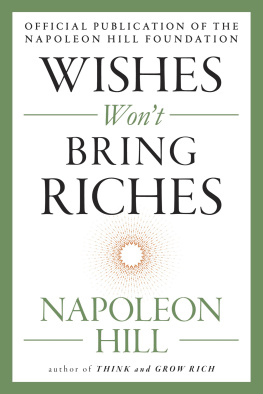The Tracer of Lost Persons
Robert W. Chambers
To Mr. and Mrs. William A. Hall
1906
For the harmony of the world, like that of a harp, is made up of discords.
HERACLITUS.
He was thirtythree, agreeable to look at, equipped with as much culture and intelligence as is tolerated east of Fifth Avenue and west of Madison. He had a couple of elaborate rooms at the Lenox Club, a larger income than seemed to be good for him, and no profession. It follows that he was a pessimist before breakfast. Besides, it's a bad thing for a man at thirtythree to come to the conclusion that he has seen all the most attractive girls in the world and that they have been vastly overrated. So, when a club servant with gilt buttons on his coat tails knocked at the door, the invitation to enter was not very cordial. He of the buttons knocked again to take the edge off before he entered; then opened the door and unburdened himself as follows:
"Mr. Gatewood, sir, Mr. Kerns's compliments, and wishes to know if 'e may 'ave 'is coffee served at your tyble, sir."
Gatewood, before the mirror, gave a vicious twist to his tie, inserted a pearl scarf pin, and regarded the effect with gloomy approval.
"Say to Mr. Kerns that I amflattered," he replied morosely; "and tell Henry I want him."
"'Enry, sir? Yes, sir."
The servant left; one of the sleek club valets came in, softly sidling.
"Henry!"
"Sir?"
"I'll wear a white waistcoat, if you don't object."
The valet laid out half a dozen.
"Which one do you usually wear when I'm away, Henry? Which is your favorite?"
"Sir?"
"Pick it out and don't look injured, and don't roll up your eyes. I merely desire to borrow it for one day."
"Very good, sir."
"And, Henry, hereafter always help yourself to my best cigars. Those I smoke may injure you. I've attempted to conceal the keys, but you will, of course, eventually discover them under that loose tile on the hearth."
"Yes, sir; thanky', sir," returned the valet gravely.
"AndHenry!"
"Sir?" with martyred dignity.
"When you are tired of searching for my olivine and opal pin, just find it, for a change. I'd like to wear that pin for a day or two if it would not inconvenience you."
"Very good, sir; I will 'unt it hup, sir."
Gatewood put on his coat, took hat and gloves from the unabashed valet, and sauntered down to the sunny breakfast room, where he found Kerns inspecting a morning paper and leisurely consuming grapefruit with a cocktail on the side.
"Hullo," observed Kerns briefly.
"I'm not on the telephone," snapped Gatewood.
"I beg your pardon; how are you, dear friend?"
"I don't know how I am," retorted Gatewood irritably; "how the devil should a man know how he is?"
"Everything going to the bowwows, as usual, dear friend?"
"As usual. Oh, read your paper, Tommy! You know well enough I'm not one of those tailwagging imbeciles who wakes up in the morning singing like a halfwitted lark. Why should I, with this taste in my mouth, and the laundress using vitriol, and Henry sneering at my cigars?" He yawned and cast his eyes toward the ceiling. "Besides, there's too much gilt all over this club! There's too much everywhere. Half the world is stucco, the rest rococo. Where's that Martini I bid for?"
Kerns, undisturbed, applied himself to cocoa and toasted muffins. Grapefruit and an ambertinted accessory were brought for the other and sampled without mirth. However, a little later Gatewood said: "Well, are you going to read your paper all day?"
"What you need," said Kerns, laying the paper aside, "is a jobany old kind would do, dear friend."
"I don't want to make any more money."
"I don't want you to. I mean a job where you'd lose a lot and be scared into thanking Heaven for carfare. You're a nice object for the breakfast table!"
"Bridge. I will be amiable enough by noon time."
"Yes, you're endurable by noon time, as a rule. When you're forty you may be tolerated after five o'clock; when you're fifty your wife and children might even venture to emerge from the cellar after dinner"
"Wife!"
"I said wife," replied Kerns, as he calmly watched his man.
He had managed it well, so far, and he was wise enough not to overdo it. An interval of silence was what the situation required.
"I wish I had a wife," muttered Gatewood after a long pause.
"Oh, haven't you said that every day for five years? Wife! Look at the willing assortment of dreams playing Sally Waters around town. Isn't this borough a bower of beautya flowery thicket where the prettiest kind in all the world grow under glass or outdoors? And what do you do? You used to pretend to prowl about inspecting the yearly crop of posies, growling, cynical, dissatisfied; but you've even given that up. Now you only point your nose skyward and squall for a mate, and yowl mournfully that you never have seen your ideal. I know you."
"I never have seen my ideal," retorted Gatewood sulkily, "but I know she existssomewhere between heaven and Hoboken."
"You're sure, are you?"
"Oh, I'm sure. And, rich or poor, good or bad, she was fashioned for me alone. That's a theory of mine; you needn't accept it; in fact, it's none of your business, Tommy."
"All the same," insisted Kerns, "did you ever consider that if your ideal does exist somewhere, it is morally up to you to find her?"
"Haven't I inspected every dbutante for ten years? You don't expect me to advertise for an ideal, do youobject, matrimony?"
Kerns regarded him intently. "Now, I'm going to make a vivid suggestion, Jack. In fact, that's why I subjected myself to the ordeal of breakfasting with you. It's none of my business, as you so kindly put it, butshall I suggest something?"
"Go ahead," replied Gatewood, tranquilly lighting a cigarette. "I know what you'll say."
"No, you don't. Firstly, you are having such a good time in this world that you don't really enjoy yourselfisn't that so?"
"Iwell Iwell, let it go at that."
"Secondly, with all your crimes and felonies, you have one decent trait left: you really would like to fall in love. And I suspect you'd even marry."
"There are grounds," said Gatewood guardedly, "for your suspicions. Et aprs?"
"Good. Then there's a way! I know"
"Oh, don't tell me you 'know a girl,' or anything like that!" began Gatewood sullenly. "I've heard that before, and I won't meet her."
"I don't want you to; I don't know anybody. All I desire to say is this: I do know a way. The other day I noticed a sign on Fifth Avenue:
KEEN & CO.
TRACERS OF LOST PERSONS
It was a most extraordinary sign; and having a little unemployed imagination I began to speculate on how Keen & Co. might operate, and I wondered a little, too, that, the conditions of life in this city could enable a firm to make a living by devoting itself exclusively to the business of hunting up missing people."
Kerns paused, partly to light a cigarette, partly for diplomatic reasons.
"What has all this to do with me?" inquired Gatewood curiously; and diplomacy scored one.
"Why not try Keen & Co.?"
"Try them? Why? I haven't lost anybody, have I?"
"You haven't, precisely lost anybody, but the fact remains that you can't find somebody," returned Kerns coolly. "Why not employ Keen & Co. to look for her?"
"Look for whom, in Heaven's name?"
"Your ideal."
"Look forfor my ideal! Kerns, you're crazy. How the mischief can anybody hunt for somebody who doesn't exist?"
"You say that she












